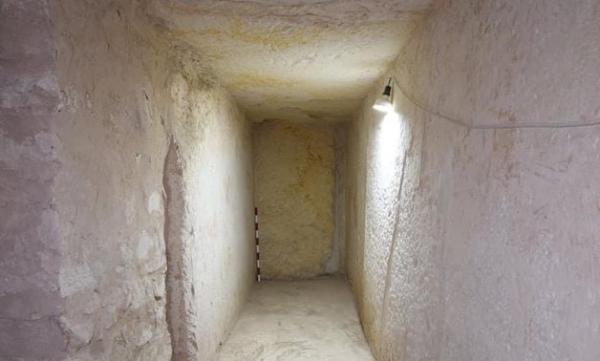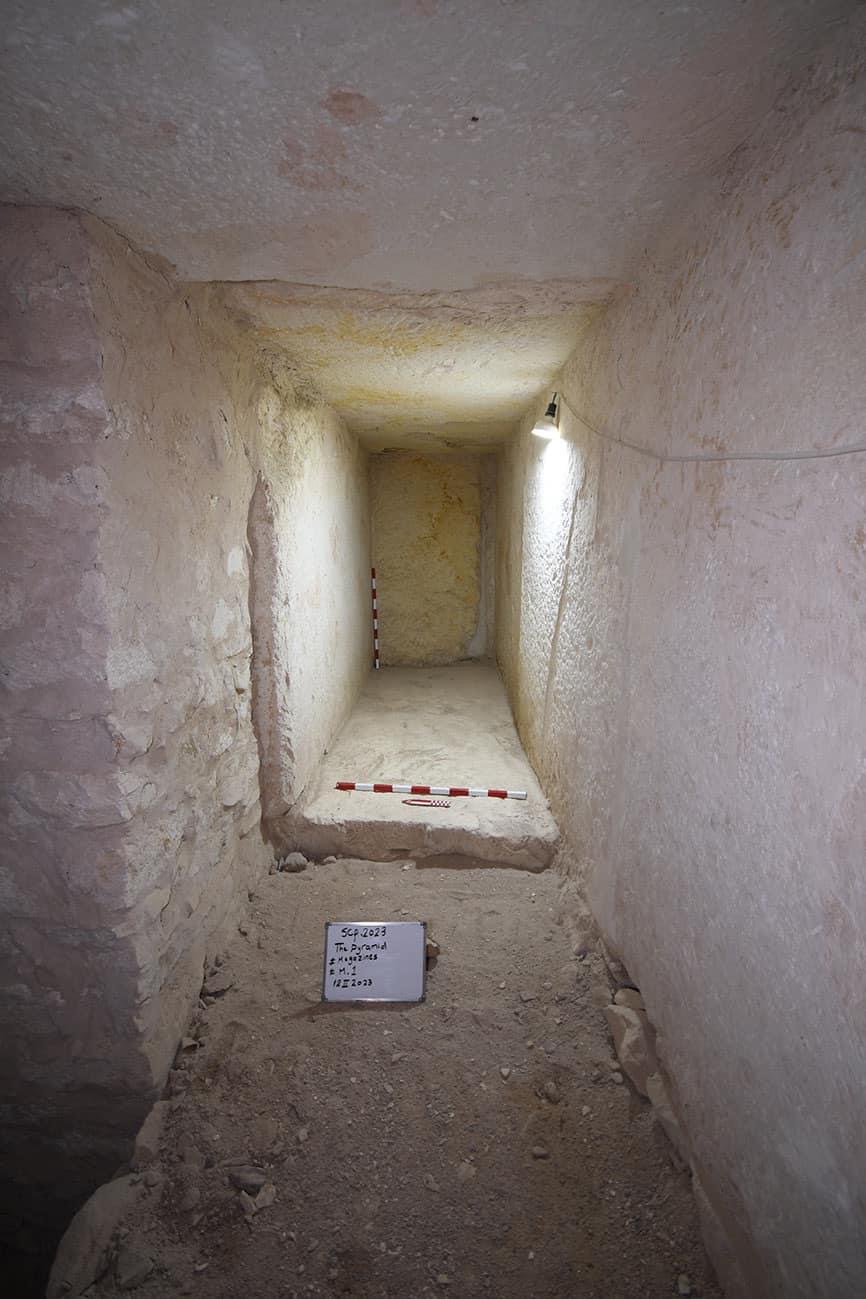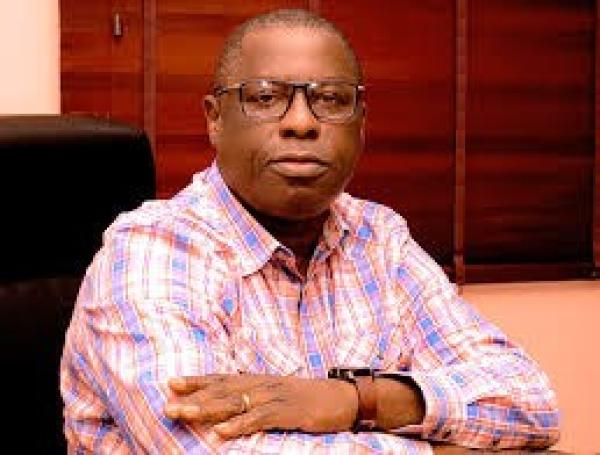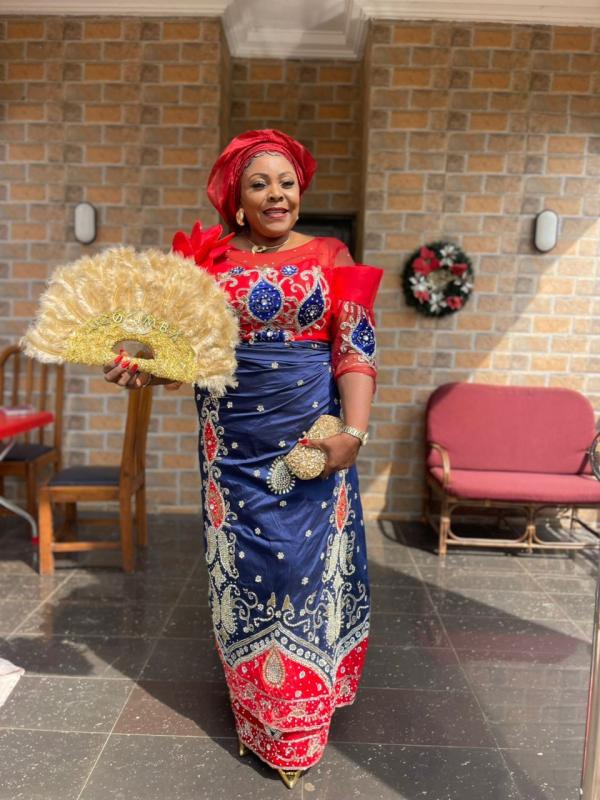
The joint Egyptian-German mission managed to discover eight storage chambers within Sahure’s Pyramid in the Abusir Necropolis south of Giza.
Mostafa Waziri Secretary General of the Supreme Council of Antiquities (SCA) explained that this unprecedented discovery sheds the light on the interior design and architecture of Sahure’s Pyramid that belong to King Sahure who was the second king of the Fifth Dynasty and the first king to be buried in Abusir.
Waziri added that the chambers will be opened to scholars for studies after completing all of restoration procedures.
Egyptologist Mohamed Ismail Khaled head of the joint Egyptian-German mission explained that the team managed during the restoration process to know the original dimensions and layout of the antechamber.

“Despite that the eastern wall of the antechamber was severely damaged, and only the north-eastern corner and 0.30 m of the eastern wall were still detectable, the mission was able to find traces of a low passage that was previously detected by British explorer John Perring in 1836, so this discovery proved that Perring’s previous observation was correct.”
Khaled recounted that the eight storerooms were uncovered after removing all the rubble in the passage.
Khaled added that although the northern and southern parts of the storeroom's area, the ceiling and the original floor were all badly damaged, the remnants of the original walls and parts of the floor can still be noticed.
The head of the joint Egyptian-German mission added that the mission documented each magazine's layout and dimensions, and this helped them much to understand the pyramid's interior design.
Khaled further explained that the state-of-the-art technology, including the 3D laser scanning, helped the Egyptian-German mission to discover everything related to the pyramid and map its external and internal areas.
This highly important discovery was made during conservation work carried out by the German-Egyptian archeological mission from the University of Würzburg. The mission started its work in 2019 and is supported by the Antiquities Endowment Fund of the American Research Centre in Egypt.






















